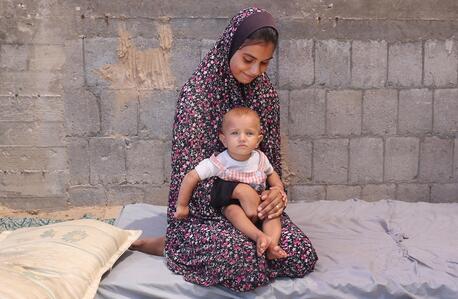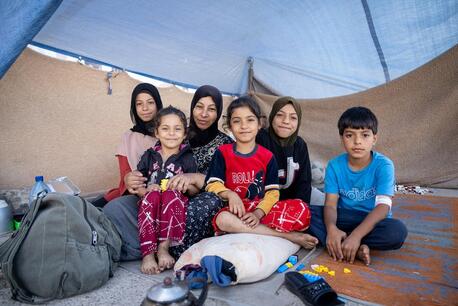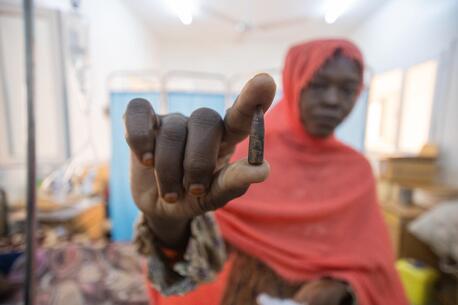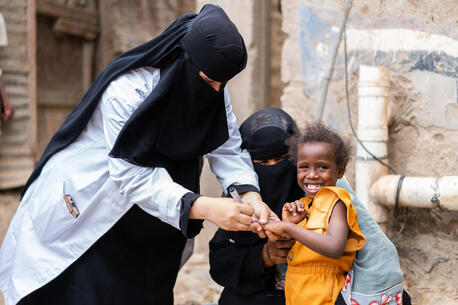
Community Health Workers: Elevating Health Services for Children and Families
Community health workers play a crucial role in delivering essential health care to vulnerable populations worldwide, despite many challenges. Learn how UNICEF supports their work to increase their impact for children and families and strengthen community health systems.
Community health workers: on the front lines building trust and breaking down barriers to improve community health
Across the world, access to essential health care is often dependent on location. Other factors like poverty, gender norms, climate change, poor nutrition and inaccessible social services can further complicate the situation for children and families worldwide.
A community health worker (CHW) can bridge those divides, bringing much-needed services and support to those who would otherwise miss out. These frontline workers — most of them women — are trained to deliver vital health and nutrition services to women and children in their communities. And because they are often serving their own neighbors, their local knowledge and sensitivities go a long way toward ensuring needs are met.
In many parts of the world, CHWs are often the ones best suited for connecting with mothers and other female caregivers, a population that is often out-of-reach for male health workers and other authority figures due to social, gender and cultural norms. CHWs are likely to speak the same language and share an awareness and understanding of local values and customs and challenges.
This helps build trust. And with that trust, a community health worker is able to serve not only as a health care provider, but also a health educator and advocate — addressing caregivers' concerns and helping them make informed decisions about their own health and well-being and their children's.
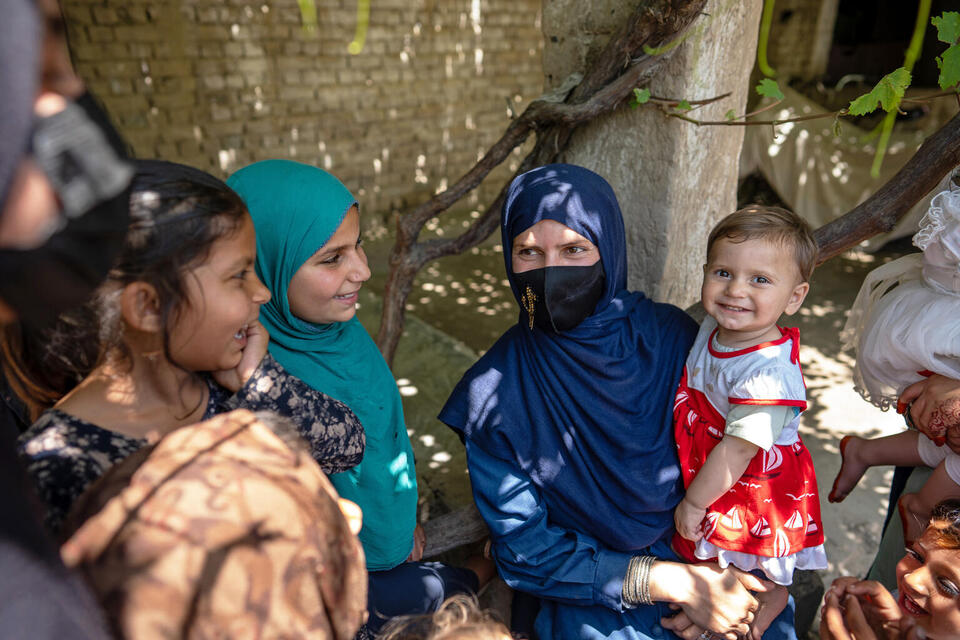
Community health workers play a particularly vital role in remote and underserved areas, providing a range of services and support, including:
- screenings for diseases like malaria
- administering essential vaccines
- providing basic care for ailments and injuries — or referring to a health facility if needed
- supporting pregnant women with routine check-ups, assisting in safe deliveries and supporting breastfeeding
- screening for malnutrition and counseling caregivers on best feeding practices
- educating community members about the health benefits of proper hygiene including handwashing
- leveraging their extensive local knowledge to help identify and locate hard-to-reach children
- making recommendations based on community needs
“The essence of our work is saving people’s lives and reducing the suffering of women and children," says Ghada Ali Obaid, a community health worker in Yemen. "Personally, this is the most significant indicator of success in my work and life."
While CHWs can be found across the world, their work is especially crucial in countries with the highest levels of child and maternal mortality and malnutrition in children. In these areas, community health workers may be the only path to deliver services to the most marginalized, hard-to-reach families.
And by helping to overcome barriers to health care, they improve health service coverage and help lay a foundation for effective emergency preparedness and response.
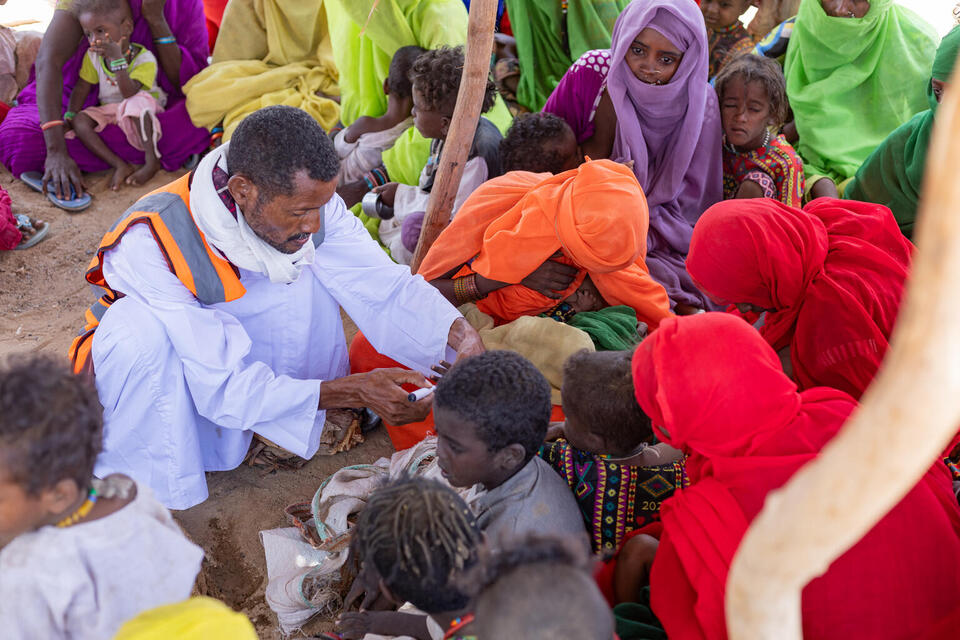
In an outbreak emergency, for example, CHWs play a critical role in detecting and reporting new cases and supporting public information campaigns around prevention and containment. In a natural disaster or climate-driven crisis, they provide essential support to their communities, helping to reduce and mitigate ongoing health, nutrition and economic consequences, including the increasingly detrimental health impacts of climate change.
The many challenges community health workers face
Despite all this, community health workers are often poorly paid, if they are compensated at all. Gender-discriminatory policies and practices in many countries restrict financing for CHW staff and their work. They are often denied training and professional growth opportunities and have long been underrepresented in or excluded from leadership roles.
Overall, women make up nearly 64 percent of the health sector workforce in low- and middle-income countries and more than 75 percent in high-income countries. And on average, those women earn 20 percent less than their male counterparts — partly due to the fact that many, or an estimated 6 million worldwide, serve in unpaid and underpaid roles, including as CHWs.
Many female community health workers also face threats to their personal security, including gender-based violence, verbal abuse and discrimination. This contributes to a global shortage in the overall health workforce, leaving CHWs overworked and affecting their quality of care.
Supporting community health workers strengthens and improves health systems
UNICEF has found that establishing an integrated community health system — one where CHWs play an important role — has become more important than ever for advancing the health and well-being of children worldwide.
Between 2019 and 2021, the number of zero-dose children — those who have never received any vaccinations — rose from 13 million to 18 million globally. Some countries have seen a 40 percent or more increase in child wasting since 2016. Reaching malnourished and under-vaccinated children with community health services is necessary to reverse these trends and reduce child mortality.
The COVID-19 pandemic demonstrated just how indispensable CHWs are to ensure an effective outbreak response while also keeping essential health services like routine vaccinations going.
CHWs — as the lifeblood of a functioning community health system — are also cost-effective. Investing in them yields significant economic benefits, including increased productivity and job creation, particularly for women.
By improving health care coverage for disadvantaged and marginalized populations, investing in a community-based health workforce also supports UNICEF's overall mission: to create a more equitable world where every child can be healthy.
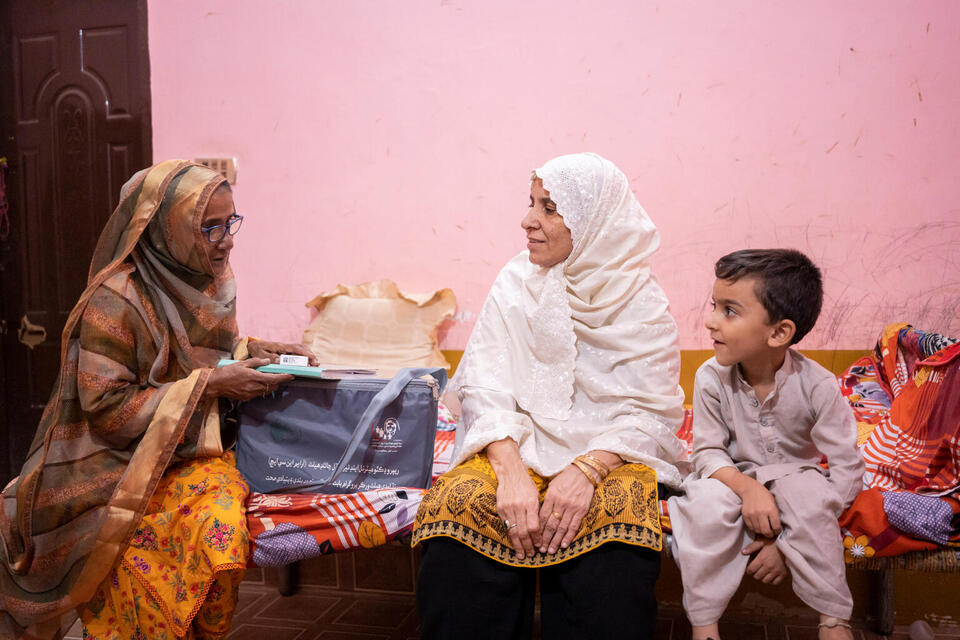
And yet community health remains severely underfunded in many parts of the world. To help national systems reach their full potential, UNICEF works with governments and other partners to prioritize community health and to build a well-trained, fairly-compensated CHW workforce.
These efforts include:
- mobilizing political momentum, creating partnerships and enhancing coordination to boost investment in community health
- collaboratively supporting countries in the integration of community health programs into national health systems to enhance effectiveness, sustainability and continuity of care
- championing the professionalization of community health workers, ensuring that they are sufficiently trained, paid, protected, supervised and equipped to deliver the highest quality of care and offered opportunities for career growth
- supporting the delivery of a people-centered, high-quality integrated package of services that is responsive to the unique needs of each community
UNICEF announced the forming of the Community Health Delivery Partnership at the 2023 World Health Summit, an effort to strengthen community-based primary health care — with a focus on CHWs — by bringing together regional, national and global stakeholders.
"If we could increase support to these workers, helping to extend their reach in vulnerable communities, the impact would be incredible," UNICEF Executive Director, Catherine Russell said at launch.
"We know... that if community health workers could reach at least 90 percent of children in need with critical child survival interventions, we would reduce the child mortality rate in high burden countries by a third. We also know that the impact of these workers can be maximized when they are supported with fair pay, training opportunities, safe working conditions and resources to get the job done."
Join UNICEF in supporting the advancement of community health workers and systems across the globe. Donate today.

